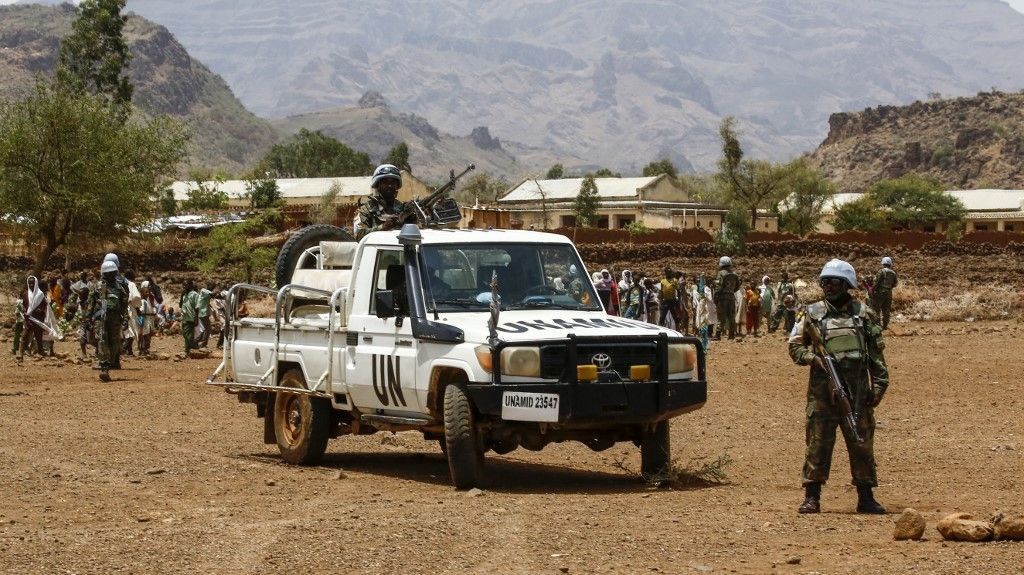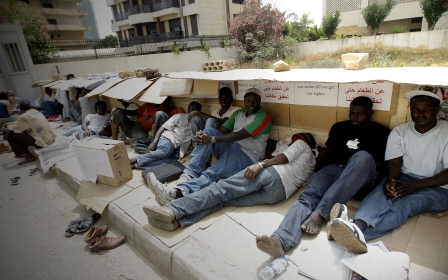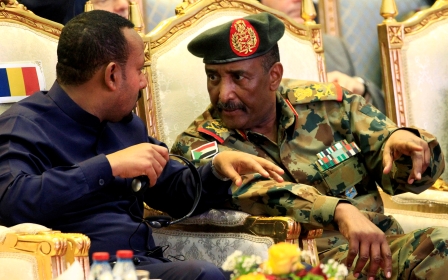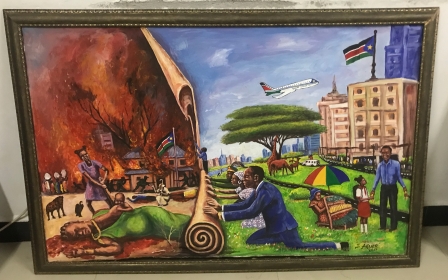UN peacekeeper request highlights dispute between Sudan civilians and military

Sudan's power-sharing civilian and military leaders could be facing a stand-off over a request to bring in UN peacekeepers to ease the country's peace process.
The move could potentially create another public confrontation only days after civilian leaders accused the military head of the ruling Sovereign Council, Abdel Fattah al-Burhan, of violating agreements by meeting Israeli Prime Minister Benjamin Netanyahu without their knowledge.
Opponents of a peacekeeping presence have warned it could impinge on Sudan's sovereignty while pro-democracy protesters argue it would safeguard the transitional government but questions have also been raised about whether consensus among civilian and military leaders is breaking down.
Prime Minister Abdalla Hamdok requested the UN Security Council establish a special political mission to assist the peace process and help the country mobilise international financial assistance, Hamdok's press secretary Elbarag Alnazir said.
Alnazir said the request is also aimed at filling the gap expected to be created after the withdrawal of the UN peacekeeping mission in Darfur, which the Sudanese military has been pushing for.
According to the document seen by Middle East Eye, the request asks for support in the peace process and in implementing constitutional agreements made after the ouster of three-decade ruler Omar al-Bashir and to help in peacebuilding and disarmament.
Sudan is currently in talks with rebel groups on various fronts who fought the state under Bashir, who was accused of excluding marginalised groups and minorities and genocide in the Darfur region.
The head of the Sudanese rebel coalition, the Sudanese Revolutionary Front (SRF), Alhadi Idriss told MEE that Hamdok’s move was a sign of goodwill.
“Such steps increase confidence and help accelerate the peace process,” he said.
UN expert Ali Saeed Ali told MEE the request would give more credibility to the government and to the entire process.
“This decision is ensuring political will from the senior leadership of the state and giving a positive sign to the rebels and to the international community,” he said.
A sign of trouble
A former leading member of Bashir's dissolved ruling National Congress Party party, Sana Hamad, claimed Hamdok was a failure and had surrendered the country to Western powers.
“How can a leader call for foreign forces to come to his country?” she said. “There are no reasons at all for this letter. There is no real war in the country, there is no natural disaster, no famine."
Former prime minister Sadiq al-Mahdi, who was deposed by Bashir, also called it "an unnecessary step that would deepen the disputes [within the government].”
Sudanese political analyst Osman Mergani believes Hamdok's request reflects a deep mistrust between the civilians and military.
“This letter seems to be a direct result of the disputes that erupted between the military and the civilians after the meeting between Burhan and Netanyahu, so it looks like Hamdok is suspicious of the army's role,” he said, suggesting the disputes are deeper than they may appear.
“It’s more or less about the balance of power between the civilians and the military and that there is serious competition."
There are also concerns that neither the agreements made between civilians and the military after months of protest last year nor the military-led peace talks being held in South Sudan have significant safeguards against failure or international recognition.
“The constitutional declaration agreement itself was a political deal that needs guarantors and follow-up mechanisms or otherwise the region may suddenly find itself in need of another mediation,” said Horn of Africa analyst Abdul Moniem Abu, highlighting how the negotiations relied heavily on the intervention of Ethiopia.
SRF head Alhadi Idriss also said he believed the peace talks in South Sudan's capital Juba need more external support.
“If you also look to the Juba forum you will immediately realise there hasn’t been much recognition from the regional and international community because even Juba has repeatedly failed to make any breakthrough in domestic peace.
“The forum needs regional and international financial support to ensure the implementation of any peace agreement is possible."
Middle East Eye delivers independent and unrivalled coverage and analysis of the Middle East, North Africa and beyond. To learn more about republishing this content and the associated fees, please fill out this form. More about MEE can be found here.




